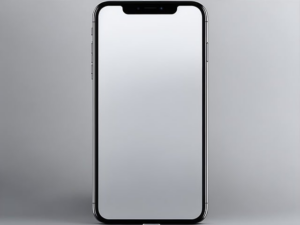Understanding Phone Call Regulations in New Hampshire
In New Hampshire, phone call regulations are designed to protect residents from unwanted or aggressive telemarketing practices while also ensuring fair business operations for legitimate companies. The state has specific laws governing both incoming and outgoing calls, particularly involving cellphones and smartphones, which are ubiquitous in today’s digital era. These regulations impact how businesses, especially those engaged in telemarketing activities, conduct their operations to ensure compliance with local laws.
For instance, New Hampshire laws restrict the hours during which telemarketers can make phone calls, mandating that such calls must not occur before 8:00 a.m. or after 9:00 p.m., except by prior consent from the recipient. Additionally, businesses and lawyers alike must adhere to do-not-call lists, ensuring that marketing calls are only made to numbers not registered for exclusion. This ensures that residents’ peace of mind is maintained while balancing the needs of companies to reach potential customers.
The Role of a Lawyer in Business Telemarketing Practices
In the age of digital communication, businesses increasingly turn to telemarketing as a way to reach customers via phone, cellphone, and smartphone. New Hampshire, like many states, has regulations in place to protect consumers from aggressive or unwanted calls, ensuring fair practices by telemarketers. A lawyer plays a crucial role here, offering expertise in navigating these complex laws. They guide businesses on compliance issues, helping them understand the do’s and don’ts of telemarketing to avoid legal pitfalls.
Lawyers assist companies in drafting consent forms, ensuring that consumers explicitly agree to receive calls. They also advise on how to handle consumer complaints and provide strategies for maintaining a professional and lawful telemarketing campaign. With their knowledge of New Hampshire’s call regulations, lawyers ensure businesses stay within the legal framework, promoting ethical practices in an increasingly regulated phone marketing landscape.
Navigating Smartphone Use for Ethical Sales and Customer Service
In today’s digital age, smartphones have become an integral part of both business operations and customer interactions. However, with increased phone use comes heightened scrutiny regarding ethical sales and service practices, especially for telemarketers and lawyers operating in New Hampshire. The state has specific laws governing telephone solicitations to ensure consumer protection, making it crucial for businesses to navigate these regulations carefully.
Businesses must respect consumers’ privacy and consent when using cell phones for marketing or legal outreach. Unwanted calls or texts can lead to legal repercussions. Telemarketers should adhere to do-not-call lists and obtain explicit permission before contacting potential clients. Similarly, lawyers engaging in phone marketing should follow ethical guidelines, ensuring their communications are clear, non-misleading, and tailored to the recipient’s needs. Navigating these smartphone use regulations is essential to maintaining a positive business reputation and avoiding legal issues in New Hampshire.



